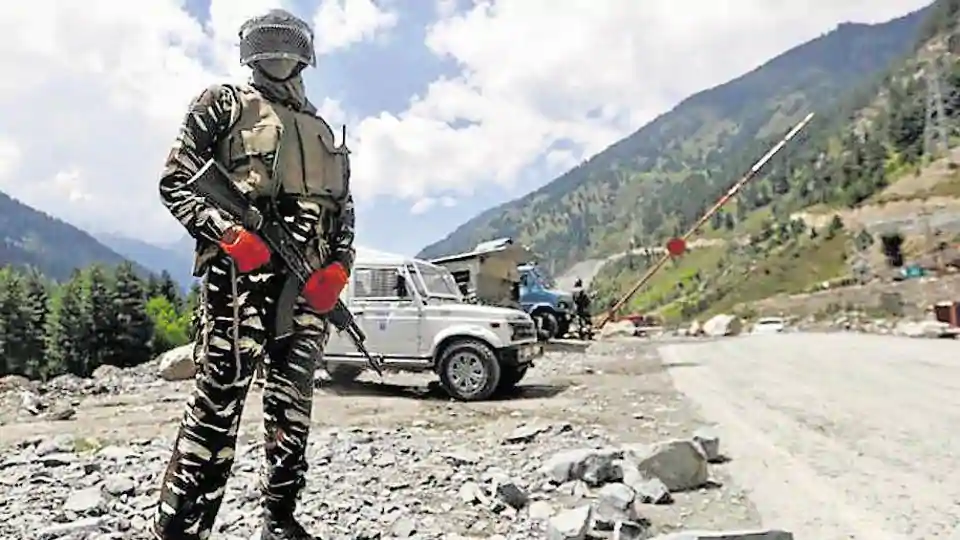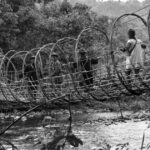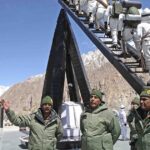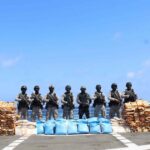
SOURCE: Hindustan Times
China on Tuesday said it has made “stern representations” to the Indian government after Indian troops allegedly crossed the Line of Actual Control (LAC) in eastern Ladakh and fired warning shots at Chinese border personnel on Monday.
“Through diplomatic and military channels we have made stern representations asking the Indian side to stop it’s dangerous actions, immediately withdraw the people who crossed the line and discipline the frontline troops and those who fired the warning shots and make sure similar incidents won’t happen again,” Chinese foreign ministry spokesperson, Zhao Lijian said at the regular ministry briefing on Tuesday.
The Indian army has already dismissed the allegations, first made by the People’s Liberation Army’s (PLA) western theatre command (WAC), early on Tuesday morning.
The WAC statement said Chinese troops had to take “countermeasures” after Indian border troops fired warning shots on Monday near the Shenpao mountain region near the south bank of Pangong Tso .
In a statement issued on Tuesday, the Indian Army said its troops exercised “great restraint and behaved in a mature and responsible manner” despite the grave provocation by Chinese troops who fired shots to intimidate Indian troops.
“It is the People’s Liberation Army that has been blatantly violating agreements and carrying out aggressive manoeuvres, while engagement at military, diplomatic and political levels is in progress,” the Indian army statement said.
“At no stage, has the Indian Army transgressed across the LAC or resorted to use of any aggressive means, including firing,” the statement said.
In Beijing, the foreign ministry, however, continued to blame the Indian side for the new round of escalation in the ongoing border tension at Pangong Lake near the LAC.
Zhao alleged that it was the Indian army, which fired first.
“I also want to stress that in this incident, the Indian side fired shots to the Chinese border troops first,” Zhao said.
“This the first time since 1975 that the tranquility is interrupted by the shots. And the Chinese side always stresses that both sides should peacefully settle our differences through dialogue and consultation. Confrontation won’t benefit either,” the foreign ministry spokesperson added.
When asked to elaborate on what “countermeasures” the Chinese troops took, Zhao said: “Currently, I have no further information for you”.
Responding to a question on whether the two sides could go back to the status quo of April, he said Beijing hoped that disengagement of troops could be achieved soon.
“You have a good wish and we all hope our troops can get back to their camping area and there won’t be any more confrontation in the border areas. You know that the place has very bad natural conditions and it is above the height of 4000 metres. In winter, it is not good for humans to live,” he said.
“So, we hope through diplomatic and military channels and through consultations on the ground, we can achieve disengagement as soon as possible and reach a consensus,” Zhao said.
In a statement issued in Mandarin, and tweeted by state media, WAC spokesperson Colonel Zhang Shuili early on Tuesday said Chinese border defence troops were forced to take countermeasures to stabilise the situation after Indian soldiers troops “outrageously fired warning shots to PLA border patrol soldiers who were about to negotiate”.
“During the operation, the Indian army blatantly shot and threatened the patrol personnel of the Chinese border defence forces who had made representations before, and the Chinese border defence forces were forced to take countermeasures to stabilise the situation on the ground,” Zhang said in the statement.
“The Indian side’s move seriously violated related agreements reached by both sides, stirred up tensions in the region, and would easily cause misunderstandings and misjudgments, which is a serious military provocation and is very vile in nature,” the spokesperson said.
Indian and Chinese troops are engaged in a bitter standoff in multiple places in eastern Ladakh.
Tensions flared up again in the region after China unsuccessfully attempted to occupy Indian territory in the southern bank of Pangong Tso lake last week when the two sides were engaged in diplomatic and military talks to resolve the border row.
The tension between the two sides escalated after violent clashes in Galwan Valley in eastern Ladakh on June 15 in which 20 Indian Army personnel were killed. The Chinese side also suffered casualties but it is yet to give out the details.
The rise in the border tension comes days ahead of an expected meeting between external affairs minister, S Jaishankar and his Chinese counterpart Wang Yi, on the margins of a Shanghai Cooperation Organisation (SCO) foreign ministers’ meeting in Moscow on September 10,
On Monday, Jaishankar, said the failure to observe several understandings on border management dating back to 1993 raises “very important questions” about the status of ties with China.
“If peace and tranquillity on the border is not a given, then it cannot be that the rest of the relationship continues on the same basis, because clearly peace and tranquillity is the basis for the relationship,” he said while participating in an online interaction organised by The Indian Express newspaper to mark the release of his book ‘The India Way’.






